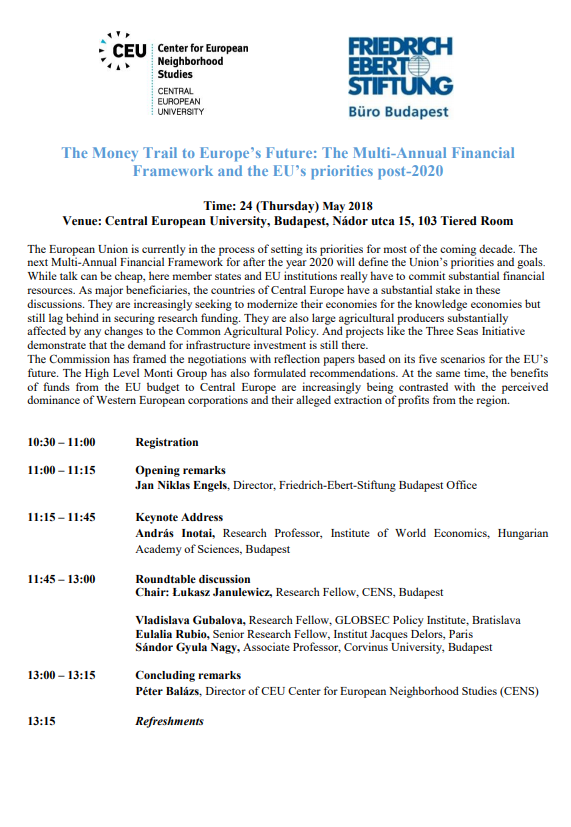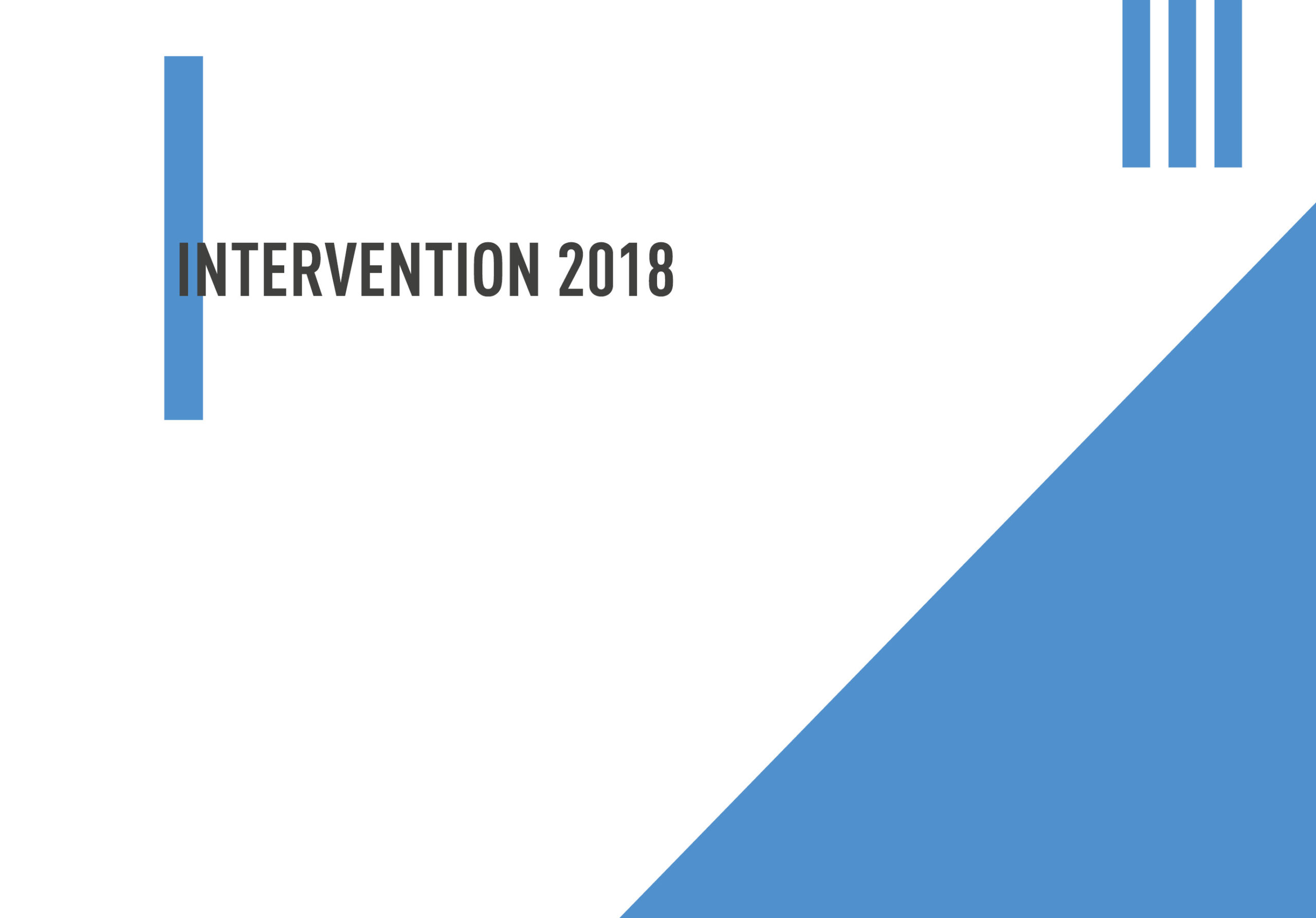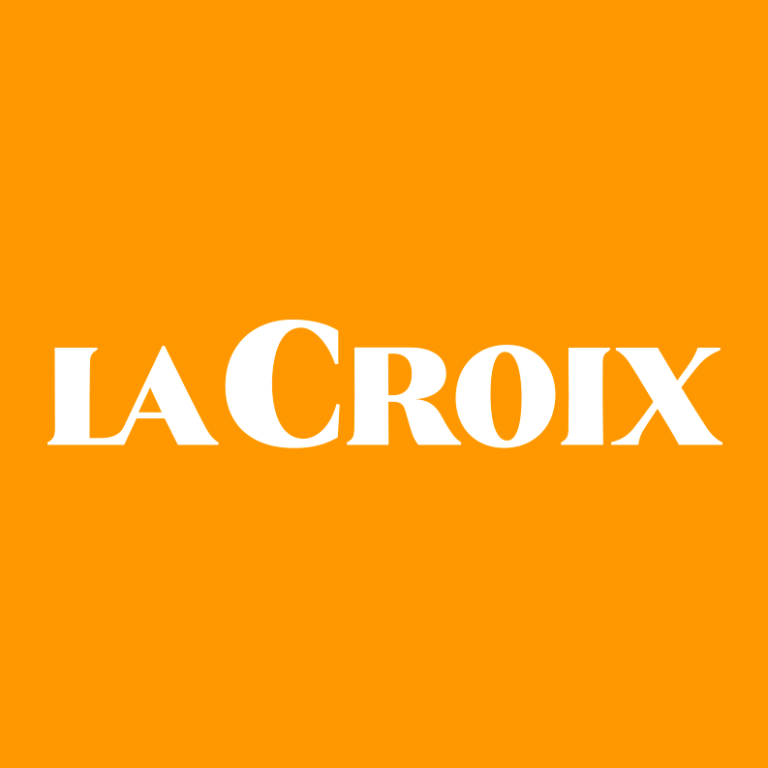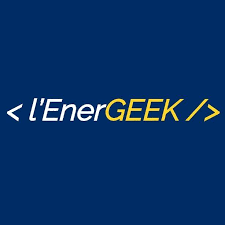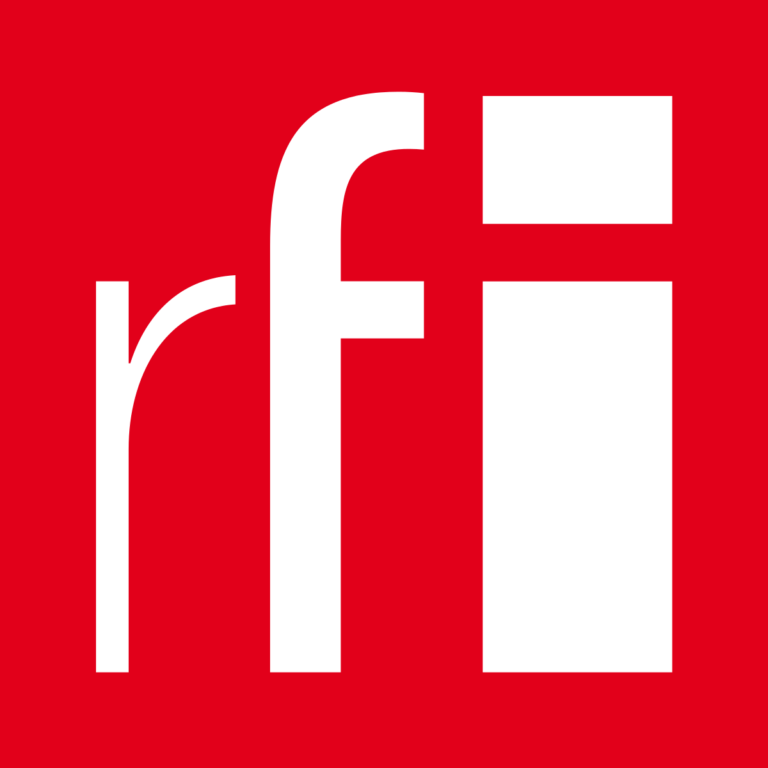Budapest, 24 May 2018 – The Money Trail to Europe’s Future: the Multi-Annual Financial Framework and the EU’s priorities post-2020
Eulalia Rubio, senior Research Fellow at the Jacques Delors Institute, intervenes for a conference organised by the Center for European Neighbourhood Studies, in Budapest, with the aim to underline main objectives and priorities for the post-2020 European budget, and the foreseeable hurdles to negotiating process.
The European Union is currently in the process of setting its priorities for most of the coming decade. The next Multi-Annual Financial Framework for after the year 2020 will define the Union’s priorities and goals, and Member States and EU institutions really have to commit substantial financial resources. As major beneficiaries and considering the current political situation, the countries of Central Europe will play a substantial role in these discussions. They are increasingly seeking to modernize their economies for the knowledge economies but still lag behind in securing research funding. They are also large agricultural producers substantially affected by any changes to the Common Agricultural Policy, which may voice their concerns and oppose a reduction of the part dedicated to agricultural subsidies. Last but not least, the demand Cohesion funds is still there, while the European Commission may decide to use the budgetary leverage as a response to Rule of Law threats observed in Poland and Hungary.
In order to shed the light and explain these crucial issues, Eulalia Rubio will have the opportunity to debate with Andrzej Sadecki, Research Fellow, Center for Eastern Studies (OSW), Zuzana Kasakova, Associate Research Fellow, EUROPEUM Institute for European Policy, and Zsolt Darvas, Senior Fellow, Bruegel, Brussels
If you want more information on this event, you can consult the programme, enclosed to this announcement.
The European Union is currently in the process of setting its priorities for most of the coming decade. The next Multi-Annual Financial Framework for after the year 2020 will define the Union’s priorities and goals, and Member States and EU institutions really have to commit substantial financial resources. As major beneficiaries and considering the current political situation, the countries of Central Europe will play a substantial role in these discussions. They are increasingly seeking to modernize their economies for the knowledge economies but still lag behind in securing research funding. They are also large agricultural producers substantially affected by any changes to the Common Agricultural Policy, which may voice their concerns and oppose a reduction of the part dedicated to agricultural subsidies. Last but not least, the demand Cohesion funds is still there, while the European Commission may decide to use the budgetary leverage as a response to Rule of Law threats observed in Poland and Hungary.
In order to shed the light and explain these crucial issues, Eulalia Rubio will have the opportunity to debate with Andrzej Sadecki, Research Fellow, Center for Eastern Studies (OSW), Zuzana Kasakova, Associate Research Fellow, EUROPEUM Institute for European Policy, and Zsolt Darvas, Senior Fellow, Bruegel, Brussels
If you want more information on this event, you can consult the programme, enclosed to this announcement.
Budapest
SUR LE MÊME THÈME
ON THE SAME THEME
PUBLICATIONS
Adapting the EU budget to make it fit for the purpose of future enlargements

EU enlargement and the post-2027 Multi-Annual Financial Framework

How stringent would the new Stability and Growth Pact be? And for who?

MÉDIAS
MEDIAS
Divisé sur l’Ukraine, le groupe de Visegrad suspend ses sommets

FRANCE : L’UNION DES INDUSTRIES UTILISATRICES D’ÉNERGIE (UNIDEN) APPELLE AU RATIONNEMENT

Peut-on parvenir à une souveraineté économique européenne?










